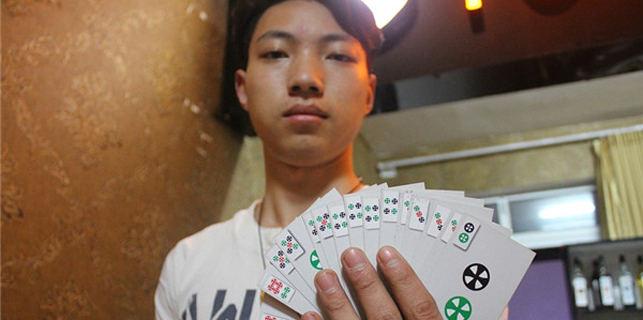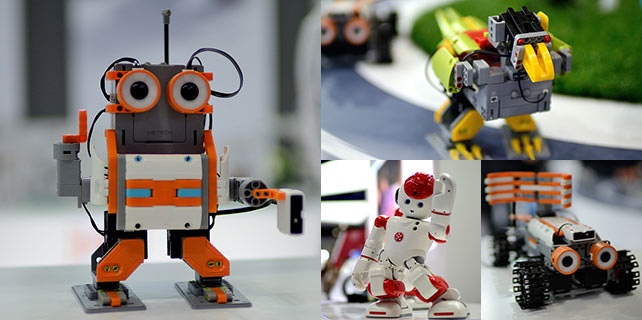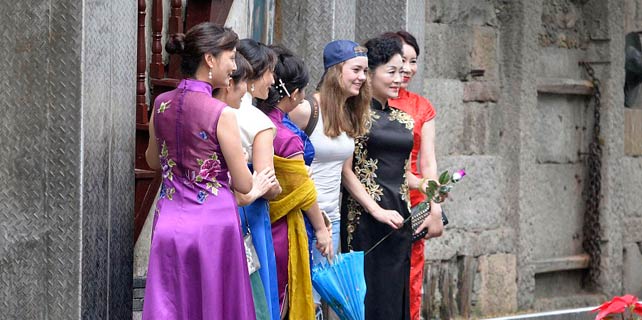Made in China Rising in Brazil
Two Chinese companies are shining bright in South America.
The hot and sultry weather of Brazil has long made air conditioner makers the world over warm up to the largest country in Latin America.
Gree, China’s largest air conditioner producer, has pulled ahead of its competitors in the Brazilian market, with energy-efficient technology, updated products and on-site service.
"As one of the earliest Chinese home appliance producers going overseas, we have been in Brazil for 16 years, have a presence in 24 states in the country, and have more than 300 dealers and more than 500 service providers," Xie Dongbo, general manager of Gree Brazil, told Xinhua.
And recently, Joao Doria, mayor of Sao Paulo, the largest city in South America, announced that the government would upgrade security systems with drones and cameras made by Dahua Technology, a private Chinese company.
"In the past ten years, we have been competing with both domestic producers and those from the US and Europe," said Wu Yingjie, general manager of Dahua’s Brazil branch. "Now we are proud to be in the mainstream of security product suppliers in Brazilian market."
Both companies, along with other Chinese corporations, have been putting more and more resources into innovation recently, a move that helps them expand their business all over the world.
Gree has topped the world for 12 years in terms of production and sales volume of air conditioners.
"In Brazil, we are known for energy and environment conservation. In this regard, we have gotten high marks from the top levels of the Brazilian government since 2004," said Xie.
"The research and develop team of Dahua Technology accounts for 10 percent of our total activity," said Song Zimin, vice-manager of Dahua Technology Brazil branch. "We have come up with a series of products this year that are certain to satisfy the many demands of our clients."
With navigation flying control, enhanced stability, proactive safety and other upgraded technologies, Dahua drones are said to outperform other drones currently on the market. Their drones can be used to inspect power lines, monitor forest fires, navigate to scenes of accidents and other chores. Since being introduced at the International Security Show in Sao Paulo several days ago, orders have been coming in.
The year 2016 was an exceptional one for both companies. Gree was authorized to provide its air conditioning products for the stadiums, athlete villages and media centers of the Olympic Games in Rio, while Dahua security cameras were installed in the stadiums and on the main street.
"According to the organizing committee, there were zero complaints about our service and products during the Rio Olympics, which meant that none of our machines broke down during the games. We won the respect of the organizing committee," Wang Weizhen, deputy general manager of Gree Brazil, told reporters.
"The committee gave us just 15 days to adjust our products and get them functioning in the stadiums," said Wu Yingjie. "It was tough, but we got it done."
Both companies are also following a strategy of localization.
Gree, which is headquartered in Zhuhai City, Guangdong province in the south of China, has set up overseas production centers in Pakistan and Brazil.
"Besides technological advancement, localization is another recipe," said Xie. "We make money in Brazil, and we let the local economy and people benefit too."
Based in Manaus, the heartland of Amazonia, Gree Brazil has been a major contributor to the local economy over the last 16 years.
"It was the preferential tax policy that attracted us at first, but we have gradually found that localization is making our company stronger than ever before. We have gained both loyal staff and reputation here in Brazil," said Wu.
"The job fulfills me," said Andreza Rocha, a local worker at Gree Brazil. "I fit the cultural atmosphere of this enterprise. The senior managers from China are excellent. I’ve learned a lot from them."
















